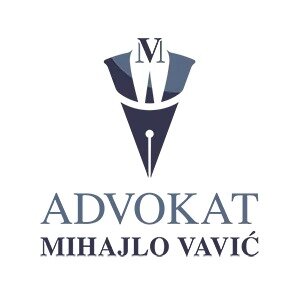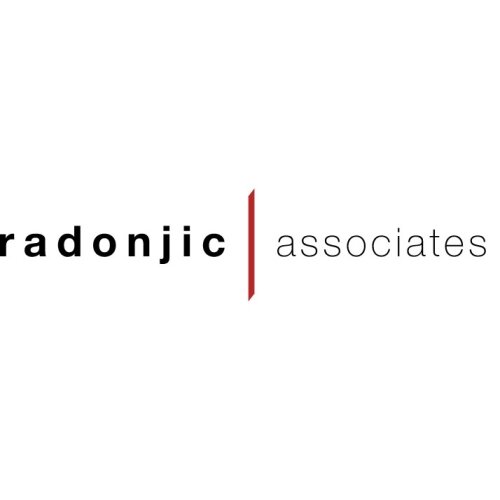Best Education Law Lawyers in Podgorica
Share your needs with us, get contacted by law firms.
Free. Takes 2 min.
List of the best lawyers in Podgorica, Montenegro
About Education Law in Podgorica, Montenegro
Education Law in Podgorica, Montenegro, encompasses the legal standards, policies, and regulations governing the education system in the capital and throughout the country. It addresses the rights and obligations of students, parents, teachers, and educational institutions. This area of law is influenced by both national legislation and international agreements to which Montenegro is a signatory. The main objectives are to ensure equal access to education, maintain educational standards, and uphold the rights of all parties within the educational sector.
Why You May Need a Lawyer
There are several situations where individuals or organizations might seek legal advice in the realm of Education Law in Podgorica:
- Disputes over Educational Rights: Conflicts involving student rights, including issues related to access to education, disability accommodations, or discrimination.
- School Discipline: Cases involving student suspensions, expulsions, or other disciplinary actions that may require legal representation or advice.
- Special Education Needs: Negotiating or enforcing appropriate educational accommodations for students with special needs.
- Employment Disputes: Issues involving teachers and school staff regarding contracts, dismissals, or workplace conditions.
- School Governance: Legal guidance related to the administration and operation of private or public educational institutions.
- Parental Rights: Cases where there are disputes between parents and educational institutions regarding the education of their children.
Local Laws Overview
Education Law in Podgorica is structured by national legislation which includes the Constitution of Montenegro, the Law on Primary Education, and the General Law on Education. Key aspects include:
- Right to Education: Guarantee of free primary and secondary education as per the national laws and regulations.
- Non-discrimination: Laws ensuring that discrimination in education based on ethnicity, race, gender, or disability is prohibited.
- Compulsory Education: Guidelines outlining the compulsory education ages and attendance requirements.
- Curriculum Standards: Regulations about the curriculum that schools must follow to maintain quality and standards.
- Special Education: Provisions and requirements to support students with special educational needs.
Frequently Asked Questions
1. What are the compulsory education requirements in Podgorica?
In Montenegro, compulsory education is required from the age of six, typically covering at least nine years of schooling.
2. Are private schools legal in Podgorica?
Yes, private schools are legal in Montenegro, including Podgorica, and they must adhere to the national educational standards and regulations.
3. How can I address discrimination issues in schools?
Discrimination issues can be addressed by contacting educational authorities or seeking legal advice to ensure the protection of rights under local anti-discrimination laws.
4. What legal protections exist for students with disabilities?
Students with disabilities are protected under both national and international laws that ensure they receive appropriate accommodations and support in education.
5. Who oversees education law compliance in Podgorica?
The Ministry of Education oversees the compliance with education laws in Montenegro, including inspections and implementation of regulations.
6. Can schools enforce uniforms?
Yes, schools are allowed to enforce uniforms as part of their policies, but regulations must adhere to national educational standards.
7. How do I resolve a dispute over my child's school suspension?
It's essential to consult with the school administration first. If unresolved, seeking legal advice might be necessary to ensure fair treatment.
8. What language is used for instruction in Podgorica schools?
Montenegrin is the official language of instruction, but there might be provisions for minority languages in some regions or schools.
9. How can I transfer my child to a different school?
Transferring schools typically requires navigating the administrative process set by the educational authorities to ensure space and eligibility.
10. Are there any parental rights concerning school curricula?
Parents have the right to be informed and involved in their child's education, which includes understanding and addressing concerns about the curriculum.
Additional Resources
For additional support and information on Education Law, individuals can contact the following:
- Ministry of Education of Montenegro: Responsible for overseeing education policy and implementation.
- Office of the Ombudsman: Offers support for human rights issues, including education-related discrimination.
- Legal Aid Organizations: Provide assistance and representation for individuals involved in educational legal cases.
Next Steps
If you require legal assistance in Education Law in Podgorica, consider the following steps:
- Identify Your Issue: Clearly understand the legal issue you are facing and gather relevant documentation and information.
- Consult Legal Professionals: Seek advice from a lawyer specializing in Education Law to understand your rights and options.
- Utilize Government Services: Reach out to the Ministry of Education or relevant bodies for guidance and support.
- Consider Alternative Dispute Resolution: Before pursuing litigation, explore mediation or other forms of dispute resolution.
Lawzana helps you find the best lawyers and law firms in Podgorica through a curated and pre-screened list of qualified legal professionals. Our platform offers rankings and detailed profiles of attorneys and law firms, allowing you to compare based on practice areas, including Education Law, experience, and client feedback.
Each profile includes a description of the firm's areas of practice, client reviews, team members and partners, year of establishment, spoken languages, office locations, contact information, social media presence, and any published articles or resources. Most firms on our platform speak English and are experienced in both local and international legal matters.
Get a quote from top-rated law firms in Podgorica, Montenegro — quickly, securely, and without unnecessary hassle.
Disclaimer:
The information provided on this page is for general informational purposes only and does not constitute legal advice. While we strive to ensure the accuracy and relevance of the content, legal information may change over time, and interpretations of the law can vary. You should always consult with a qualified legal professional for advice specific to your situation.
We disclaim all liability for actions taken or not taken based on the content of this page. If you believe any information is incorrect or outdated, please contact us, and we will review and update it where appropriate.









